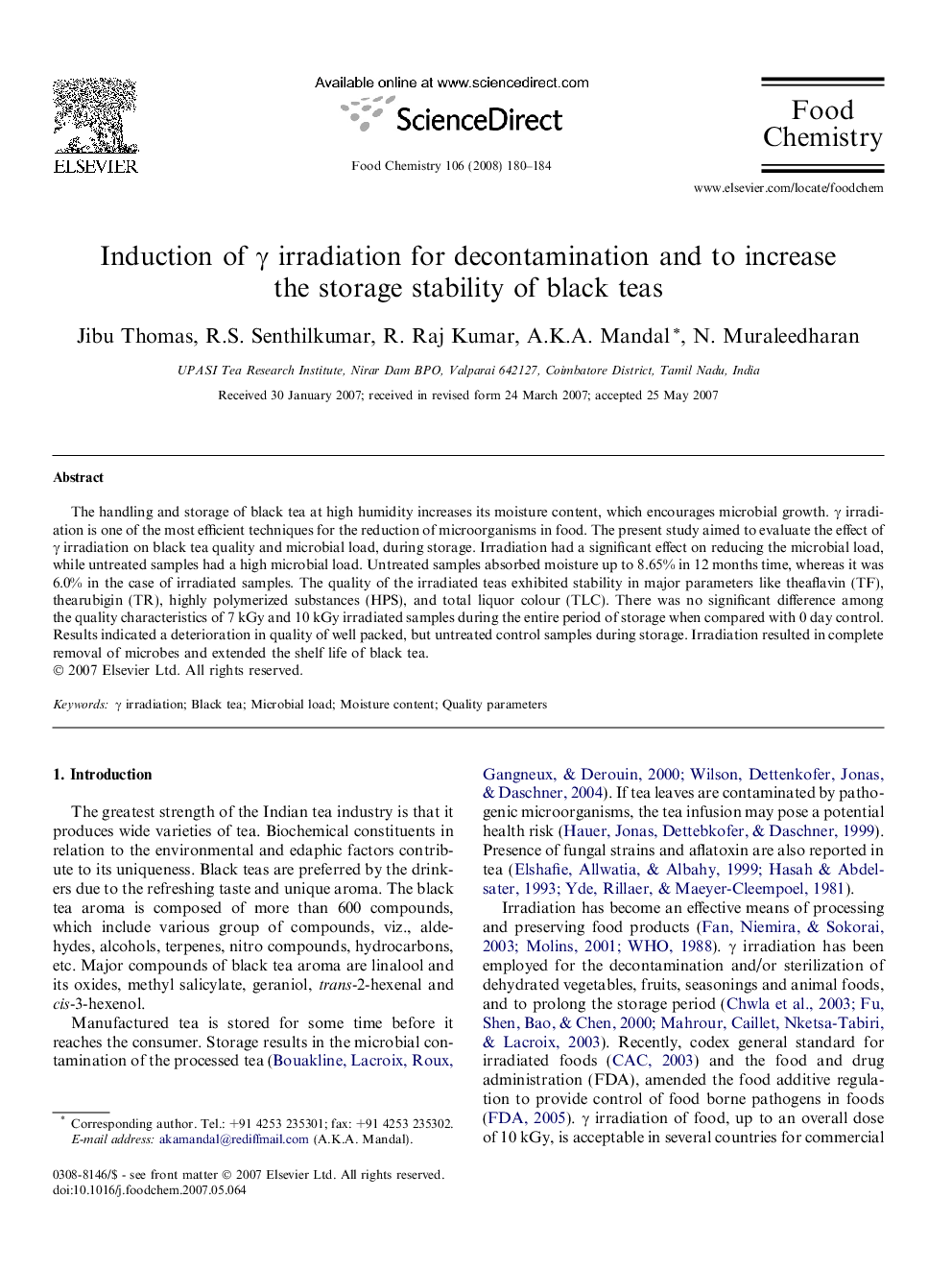| Article ID | Journal | Published Year | Pages | File Type |
|---|---|---|---|---|
| 1189104 | Food Chemistry | 2008 | 5 Pages |
The handling and storage of black tea at high humidity increases its moisture content, which encourages microbial growth. γ irradiation is one of the most efficient techniques for the reduction of microorganisms in food. The present study aimed to evaluate the effect of γ irradiation on black tea quality and microbial load, during storage. Irradiation had a significant effect on reducing the microbial load, while untreated samples had a high microbial load. Untreated samples absorbed moisture up to 8.65% in 12 months time, whereas it was 6.0% in the case of irradiated samples. The quality of the irradiated teas exhibited stability in major parameters like theaflavin (TF), thearubigin (TR), highly polymerized substances (HPS), and total liquor colour (TLC). There was no significant difference among the quality characteristics of 7 kGy and 10 kGy irradiated samples during the entire period of storage when compared with 0 day control. Results indicated a deterioration in quality of well packed, but untreated control samples during storage. Irradiation resulted in complete removal of microbes and extended the shelf life of black tea.
